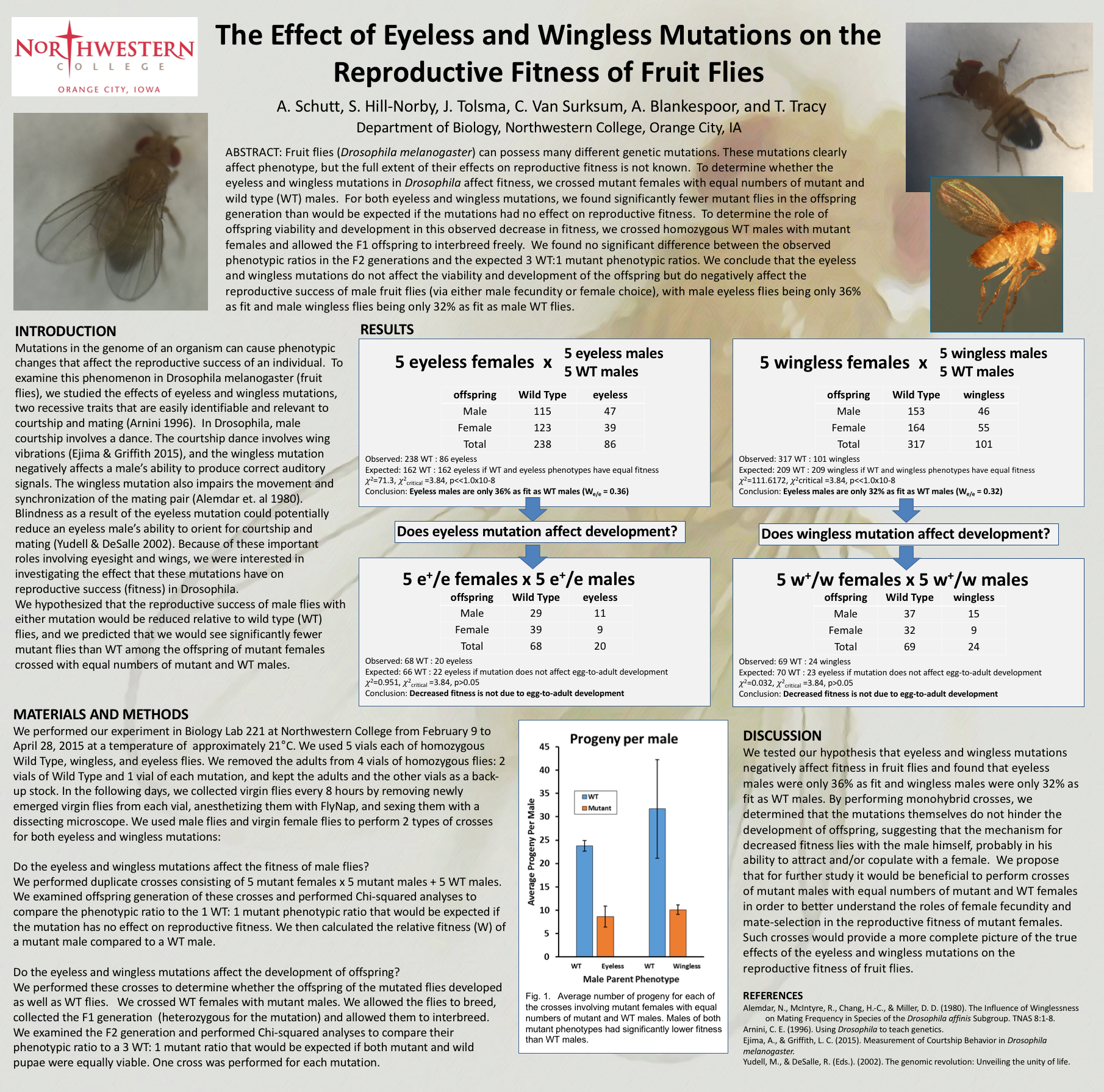The Effect of Eyeless and Wingless Mutations on the Reproductive Fitness of Fruit Flies
Alison Schutt, Skyler Hill-Norby, Joseph Tolsma, Calvin Van Surksum, and Austin Blankespoor
Mentor: Dr. Todd Tracy
Department of Biology

Fruit flies (Drosophila melanogaster) can possess many different genetic mutations. These mutations clearly affect phenotype, but the full extent of their effects on reproductive fitness is not known. To determine whether the eyeless and wingless mutations in Drosophila affect fitness, we crossed mutant females with equal numbers of mutant and wild type (WT) males. For both eyeless and wingless mutations, we found significantly fewer mutant flies in the offspring generation than would be expected if the mutations had no effect on reproductive fitness. To determine the role of offspring viability and development in this observed decrease in fitness, we crossed homozygous WT males with mutant females and allowed the F1 offspring to interbreed freely. We found no significant difference between the observed phenotypic ratios in the F2 generations and the expected 3 WT:1 mutant phenotypic ratios. We conclude that the eyeless and wingless mutations do not affect the viability and development of the offspring but do negatively affect the reproductive success of male fruit flies (via either male fecundity or female choice), with male eyeless flies being only 36% as fit and male wingless flies being only 32% as fit as male WT flies.
